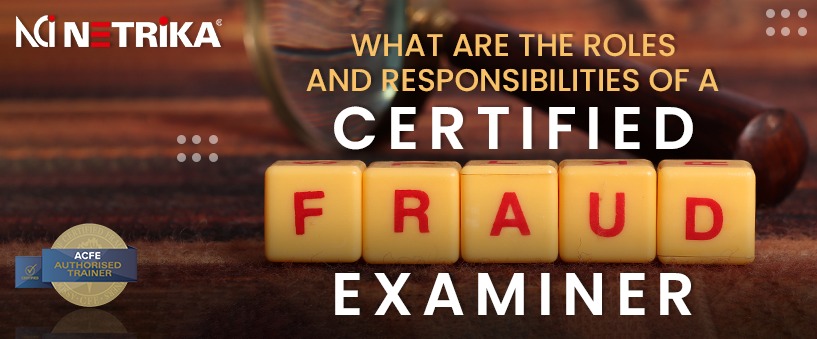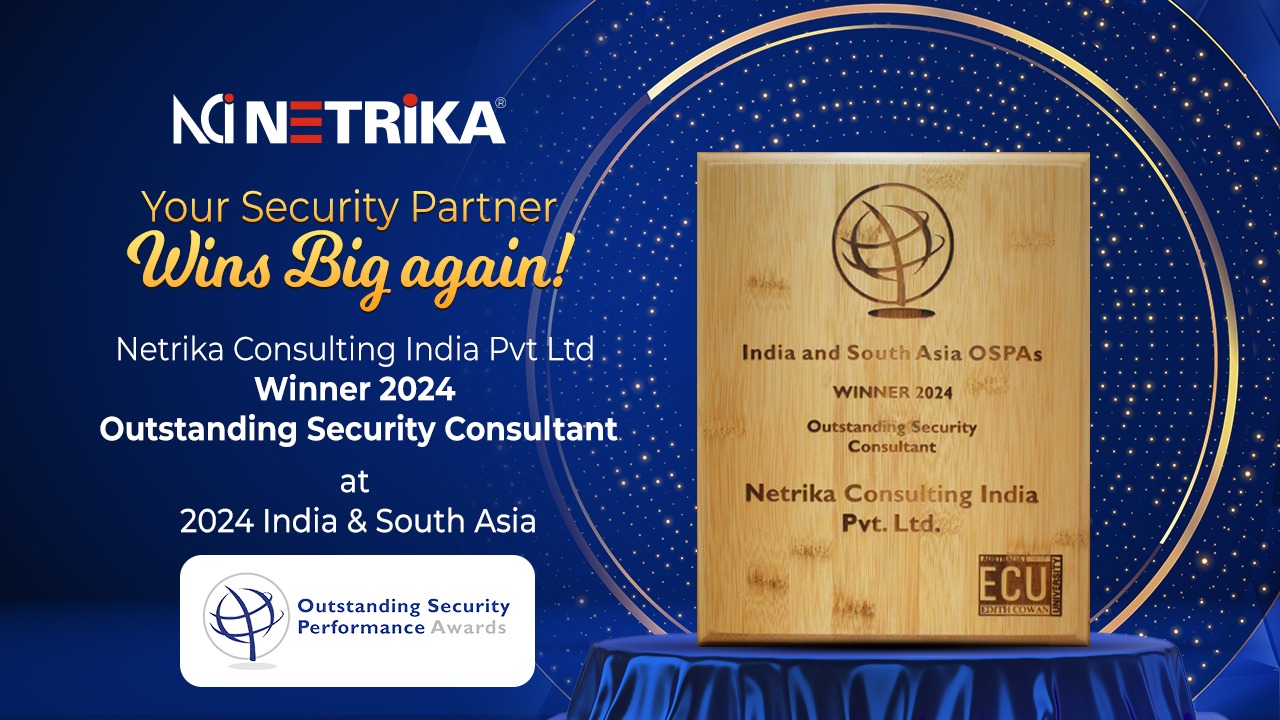News & Events
What Are The Roles And Responsibilities Of A Certified Fraud Examiner?
- July 11, 2023
- Posted by: marketing@netrika.com
- Category: Blogs

Certified Fraud Examiners are experts who investigate and prevent fraud by utilising specialised expertise in financial forensics, anti-fraud compliance and fraud risk management. CFEs detect and investigate fraud schemes and financial anomalies, conduct forensic audits, assess internal controls and offer suggestions for corrective action. They may also provide expert testimony in hearings and trials and advise organisations on fraud prevention and detection.
Roles and Responsibilities of a Certified Fraud Examiner
⮚ Conduct impartial, fair, complete, unbiased and timely investigations of client complaints of fraud, waste or abuse against the organisation.
⮚ Examine and investigate the evidence to determine the broad fact pattern of the allegation and synthesise the information into a professional report with recommendations.
⮚ Plan and coordinate field missions to gather the necessary evidence and information.
⮚ Coordination with defence attorneys to give deposition techniques and help from law enforcement resources.
⮚ Effectively and efficiently manage and prioritise a large and diverse caseload to produce positive results.
⮚ Prepare prosecution and reparation packages.
Skills and Requirements
⮚ Good interpersonal and communication abilities, including the capacity to communicate with clients, senior management and law enforcement.
⮚ Ingenuity and perseverance in obtaining case information that is not easily available, as well as an eye for detail.
⮚ Ability to work independently with minimal supervision.
⮚ Good organisational skills are required to manage a large number of assigned cases.
⮚ Expertise in insurance procedures, laws and investigation methods.
⮚ Practical knowledge of a relevant information system.
⮚ Demonstrate excellent interviewing and interrogation abilities, as well as the capacity to write reports.
⮚ Sincere and ethical, with excellent integrity and confidentiality.
⮚ Willing to submit to thorough background investigations and make job recommendations.
⮚ A bachelor’s degree in a related discipline (such as insurance studies, criminal justice, or risk management) or other appropriate accreditation (such as the Certificate of Insurance Fraud Investigator) is preferred.
If you work in compliance, risk, audit, investigative, financial, or legal roles within an organisation or have first-hand experience in these areas, a CFE can be an invaluable resource in helping you acquire a diverse set of skills to contribute to the global battle against fraud. Individuals who pass the tests for this accreditation become members of the ACFE, gaining access to invaluable fraud insights, events and networking opportunities, world-class training, and a comprehensive range of support materials and career help.
Netrika Consulting: A catalyst to your journey of becoming a Certified Fraud Examiner
A CFE course is an excellent place to begin a career in fraud prevention, as it teaches individuals how to recognise potential dangers and counteract any fraudulent conduct. Training in fraud prevention should be a continual process to guarantee that individuals are on the cutting edge of preventive measures, assisting in the fight against the problem and reducing the number of fraud cases globally.
Netrika collaborates with ACFE India to conduct the CFE certificate examination course across industry verticals through its broad array of training programmes. We are a global pioneer in providing customised training programmes from subject matter experts with extensive industry experience. Our CFE certificate course provides participants with professional recognition and reputation, as well as increased marketability and job security around the world. Netrika’s instructor-led CFE training course empowers and raises awareness for professionals and organisations to thwart possible frauds and mitigate the risk that has already harmed the entity.

